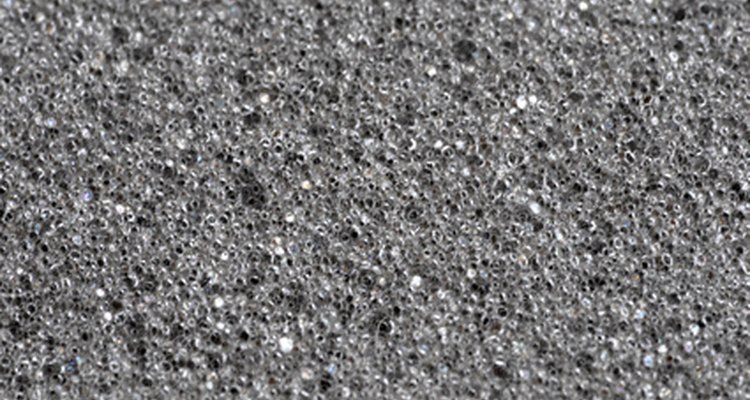
Pumice rocks are a type of igneous rock that goes through a number of different stages in its cycle. While there are a number of different types of igneous rock, pumice has a unique makeup as to how it forms, looks and feels.
Molten Rock
Pumice rock begins as molten rock or lava, super-heated minerals that flow out of volcanoes from deep inside the earth. This molten lava or rock will flow and pool until it cools, hardening in a specific way to make it igneous and forming pumice, granite or obsidian.
Cooling Rock
Once the lava has cooled, it will form rock. This rock cools in different ways; pumice rock contains a number of tiny air pockets within it, giving a porous texture and a light feel. Some pumice stone that is incredibly porous will actually float in water. However, this also means pumice stone can be broken down easily, as it is less solid then denser igneous rock.
Metamorphic
Over time, with intense heat and pressure, pumice stone will break down and crumble and scatter about, or become more compact, forming a new type of rock in the rock cycle. As pumice rock compacts on its air pockets, it becomes denser and heavier, becoming a different type of rock altogether, combining with other rocks to become metamorphic rock. These rocks include schist, slate and gneiss.
Related Articles

Rocks Used in Gravestones
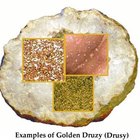
What Is Golden Druzy?

How to Extract Eucalyptus Oil

Semi-Precious Stones Found in Kansas

What Is the Difference in Black ...
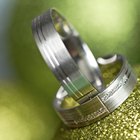
Titanium Versus Silver Rings

Types of Polyester Fabric
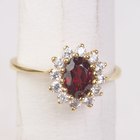
Physical Characteristics of the Ruby ...
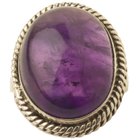
How to Clean a Purple Amethyst Rock

How to Clean Lapis Lazuli

Types of Coral Jewelry
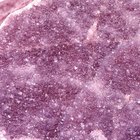
What Is a Pink Amethyst?
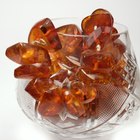
What Is Cognac Amber?

Can Lack of Intimacy Ruin a Marriage?

What Are Sugar Crystals?

What Makes Homemade Chai Curdle?

What Is 916 in Jewelry?

Heavy Whipping Cream Vs. Half & Half
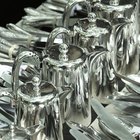
Silver Polish Ingredients

What Is Indian Flat Bread Called?
References
Writer Bio
Hailing from Austin, Texas, Daniel Westlake has written under pen names for a myriad of publications all over the nation, ranging from national magazines to local papers. He now lives in Los Angeles, Calif. but regularly travels around the country and abroad, exploring and experiencing everything he can.
Photo Credits
texture image by Zbigniew Nowak from Fotolia.com